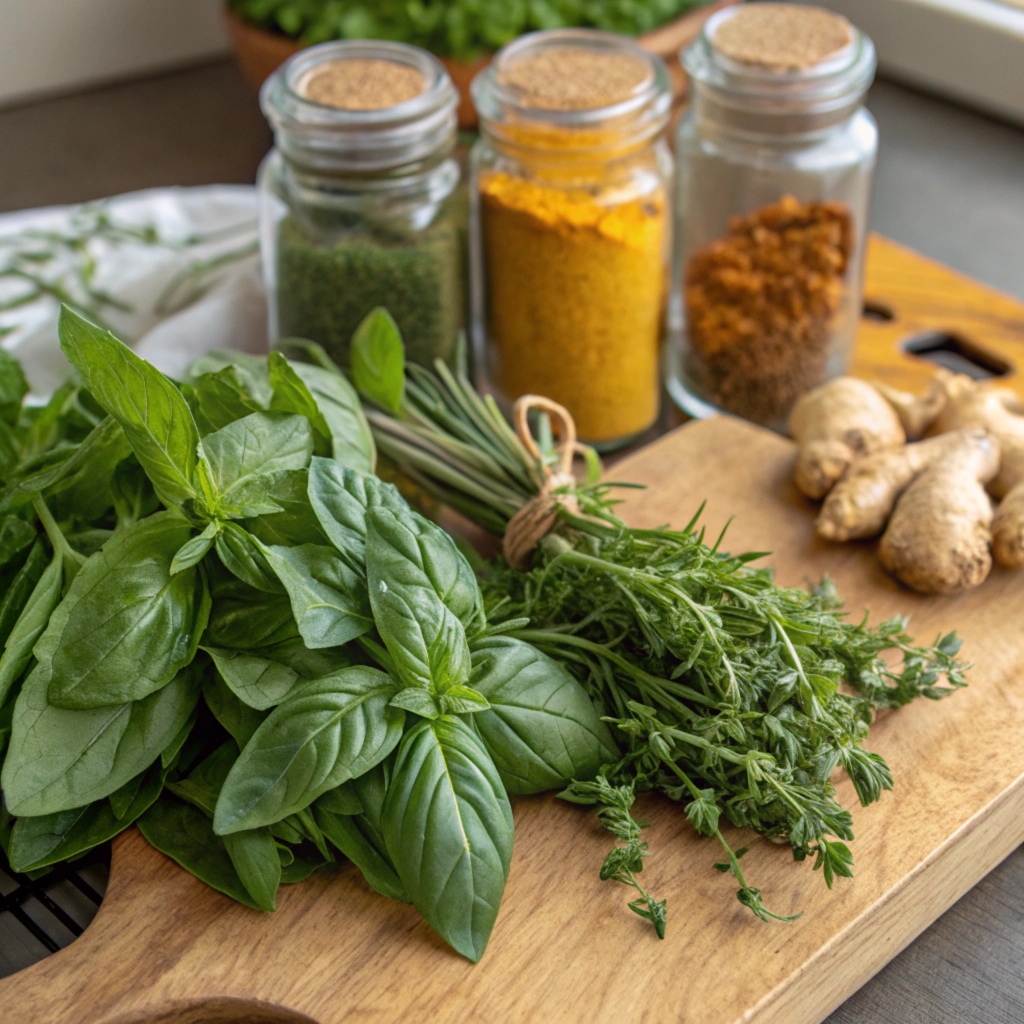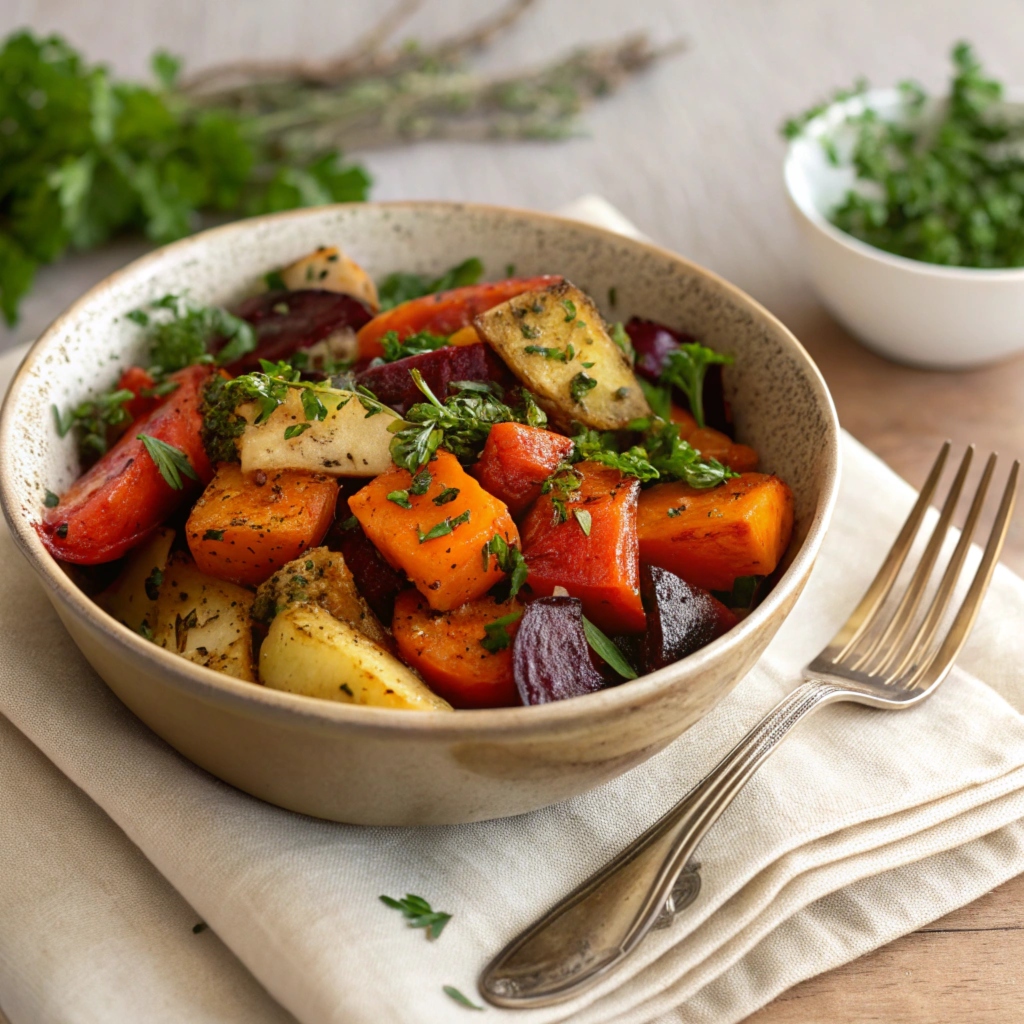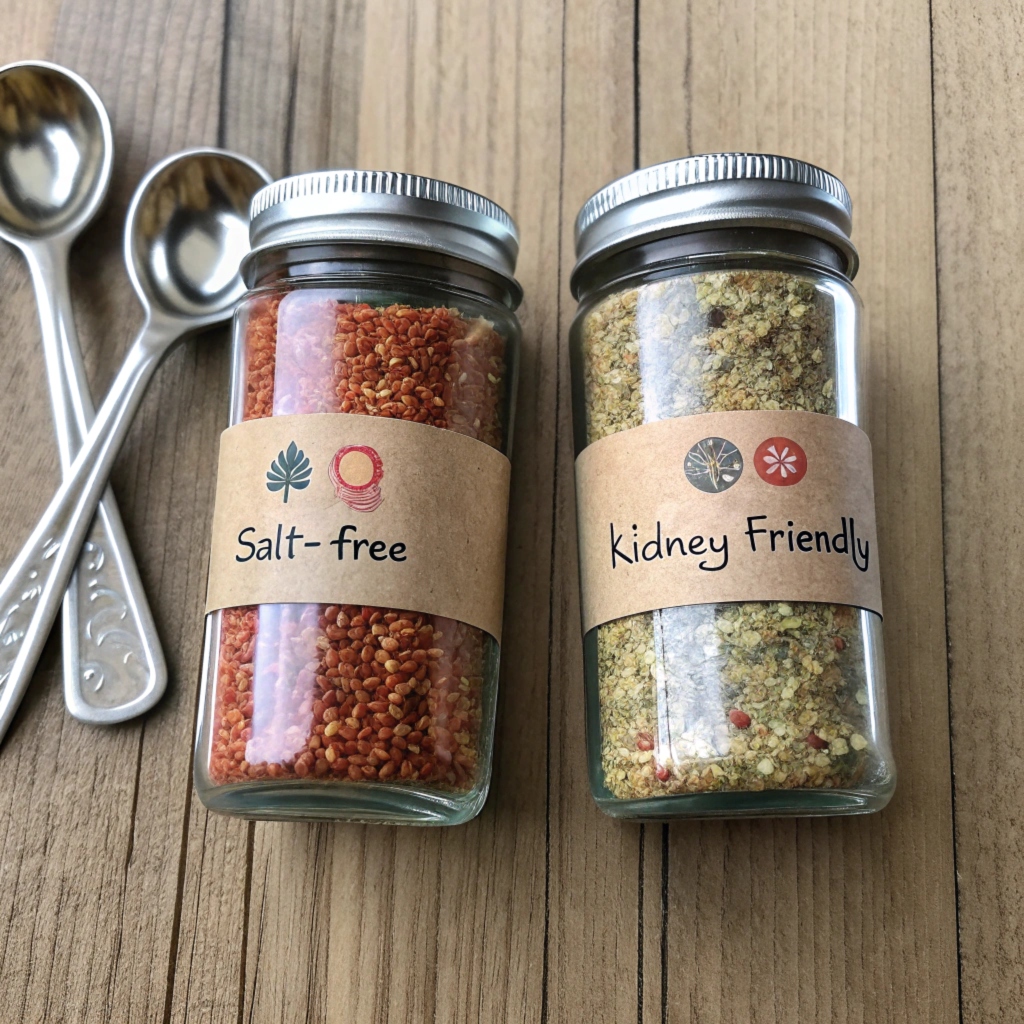What seasoning is kidney friendly ? Kidneys play a vital role in our overall health by filtering toxins, balancing electrolytes, and regulating blood pressure. However, for individuals with kidney issues or those aiming to maintain optimal kidney function, choosing the right foods—and seasonings—can make all the difference. The good news? You don’t have to sacrifice flavor for kidney health. There are numerous herbs, spices, and low-sodium blends that enhance your meals while being gentle on the kidneys.
In this article, we’ll explore what makes a seasoning kidney-friendly, highlight top herbs and spices to use, and provide practical tips on incorporating them into your diet. By the end, you’ll have a flavorful arsenal of options to elevate your cooking without compromising kidney health.
Table of contents
Understanding Kidney Health and Diet
Why Kidney Health Matters
Our kidneys are hardworking organs that filter approximately 50 gallons of blood daily. They remove waste, excess fluids, and toxins, while maintaining a healthy balance of minerals such as sodium, potassium, and phosphorus. When the kidneys are damaged or under stress—due to chronic kidney disease (CKD), diabetes, or hypertension—dietary choices become critical. What seasoning is kidney friendly ?
The Role of Diet in Kidney Function
A kidney-friendly diet limits certain nutrients, especially sodium, potassium, and phosphorus, which can exacerbate kidney problems. While many processed seasonings and spice mixes are high in these elements, there are natural and flavorful alternatives. By focusing on the right seasonings, you can avoid overloading your kidneys while still enjoying your meals.
Ingredients to Avoid in Kidney-Friendly Seasonings
When choosing seasonings, it’s important to steer clear of ingredients that can burden your kidneys. Common culprits include:
- Excess Sodium: Found in table salt, bouillon cubes, and seasoning mixes.
- High-Potassium Ingredients: Like potassium chloride, used in some salt substitutes.
- Phosphates: Present in many processed seasonings and additives.

Top Kidney-Friendly Seasonings
Flavoring your food with kidney-friendly seasonings doesn’t mean compromising on taste. Many natural herbs and spices not only add depth and richness to dishes but also offer health benefits, including anti-inflammatory and antioxidant properties. Let’s explore some of the best options for kidney health.
Herbs for Kidney Health
Herbs are an excellent way to enhance flavor without adding sodium or other harmful compounds. Here are some top choices:
Parsley: A Natural Detox Agent
Parsley isn’t just a garnish; it’s a nutritional powerhouse. Rich in vitamins A and C, parsley helps reduce inflammation and supports kidney function. Its mild, earthy flavor pairs well with soups, salads, and grilled vegetables.
Basil: Flavorful and Beneficial
Basil is a versatile herb with a slightly sweet, peppery taste. It contains essential oils like eugenol, which help reduce oxidative stress on the kidneys. Add fresh basil to pasta dishes, tomato-based sauces, or even infused water for a refreshing twist.
Oregano: Antioxidant Power
Oregano is packed with antioxidants, making it a fantastic choice for those with kidney concerns. This herb has a bold flavor profile that complements Italian and Mediterranean cuisines. Use it dried or fresh to season meats, stews, and roasted vegetables.
Spices for Kidney Health
Spices can bring warmth and complexity to your meals, and several options are both kidney-friendly and health-promoting.
Turmeric: Anti-inflammatory Wonder
Turmeric is well-known for its bright yellow color and potent anti-inflammatory properties, thanks to its active compound, curcumin. Regular use may help reduce inflammation linked to kidney disease. Sprinkle turmeric on rice, lentils, or roasted vegetables for a vibrant touch.
Ginger: A Gentle Boost for the Kidneys
Ginger offers a zingy flavor and numerous health benefits, including improved digestion and reduced nausea. For kidney patients, ginger can help combat inflammation and oxidative stress. Use it fresh in teas, stir-fries, or as a marinade for meats.
Cumin: A Subtle Touch of Flavor
Cumin is a warm, earthy spice that’s perfect for enhancing dishes like curries, soups, and roasted vegetables. It also aids digestion, which can be beneficial for those managing dietary restrictions due to kidney concerns.
Low-Sodium Blends
For those who enjoy the convenience of pre-mixed seasonings, low-sodium options are a great choice. Here are some ideas:
Homemade Salt-Free Seasoning Blends
Creating your own seasoning blends allows you to control the ingredients. Combine dried garlic, onion powder, paprika, black pepper, parsley, and oregano for a versatile, kidney-friendly mix. Use it to season everything from meats to roasted potatoes.
Store-Bought Low-Sodium Options
When buying pre-made seasoning blends, look for products labeled “low sodium” or “salt-free.” Check the ingredients to ensure there are no hidden phosphates or potassium chloride. Brands like Mrs. Dash offer a variety of flavorful, kidney-safe options.
Top Kidney-Friendly Seasonings
Choosing the right herbs, spices, and seasoning blends can transform your meals while supporting kidney health. Let’s dive into the best options for enhancing flavor without compromising kidney function.
Herbs for Kidney Health
Herbs are a fantastic way to add depth and complexity to your dishes. Packed with nutrients and antioxidants, these plant-based seasonings can elevate your cooking while being gentle on your kidneys.
Parsley: A Natural Detox Agent
Parsley is more than just a garnish—it’s a powerhouse of antioxidants and vitamins like A, C, and K. Known for its natural detoxifying properties, parsley can support kidney health by promoting urine production, which helps flush toxins.
- Uses: Add fresh parsley to salads, soups, or as a topping for grilled vegetables.
- Pro Tip: Use parsley in homemade pesto for a flavorful and kidney-friendly sauce.
Basil: Flavorful and Beneficial
Basil is a fragrant herb with anti-inflammatory and antibacterial properties. It’s low in sodium and potassium, making it ideal for a kidney-friendly diet.
- Uses: Incorporate basil into pasta sauces, pizza, or herbal teas.
- Pro Tip: Combine fresh basil with olive oil and lemon for a zesty salad dressing.
Oregano: Antioxidant Power
Oregano is rich in compounds like carvacrol and thymol, which have antioxidant and antimicrobial effects. It’s a versatile herb that complements a variety of dishes.
- Uses: Sprinkle oregano on roasted vegetables, chicken, or fish for added flavor.
- Pro Tip: Pair oregano with garlic and olive oil for a simple yet flavorful marinade.
Spices for Kidney Health
Spices bring warmth and complexity to dishes, and some even offer medicinal benefits that support kidney health.
Turmeric: Anti-inflammatory Wonder
Turmeric contains curcumin, a compound renowned for its anti-inflammatory properties. This golden spice not only adds vibrant color to your meals but also helps reduce inflammation, which can benefit those with kidney issues.
- Uses: Use turmeric in curries, rice dishes, or soups.
- Pro Tip: Combine turmeric with black pepper to enhance its absorption.
Ginger: A Gentle Boost for the Kidneys
Ginger is known for its digestive and anti-inflammatory benefits. It can help alleviate nausea and promote overall kidney health.
- Uses: Add fresh ginger to teas, stir-fries, or baked goods.
- Pro Tip: Mix grated ginger with honey and lemon for a soothing kidney-friendly drink.
Cumin: A Subtle Touch of Flavor
Cumin is a staple in many global cuisines and provides a warm, earthy flavor. It’s low in sodium and phosphorus, making it a safe choice for kidney-friendly meals.
- Uses: Use cumin in spice rubs, soups, or stews.
- Pro Tip: Toast cumin seeds before adding them to dishes for a richer flavor.
Low-Sodium Blends
For those who prefer pre-mixed seasonings, low-sodium options can provide convenience without compromising kidney health.
Homemade Salt-Free Seasoning Blends
Creating your own seasoning blends ensures complete control over the ingredients. Combine herbs and spices like garlic powder, onion powder, paprika, and parsley for a versatile mix.
- Recipe Idea: Mix equal parts garlic powder, onion powder, paprika, and dried oregano. Store in an airtight jar for easy use.
Store-Bought Low-Sodium Options
When buying pre-made seasonings, look for labels that specify “low sodium” or “no salt added.” Brands that cater to kidney-friendly diets often avoid problematic ingredients like potassium chloride. What seasoning is kidney friendly ?
- Tip: Always check the ingredient list for hidden additives or preservatives.
How to Incorporate Kidney-Friendly Seasonings Into Meals

Seasoning your food is not just about adding flavor—it’s about creating a sensory experience that satisfies your taste buds while supporting your health. Here’s how you can seamlessly include kidney-friendly seasonings into your everyday meals.
Enhancing Vegetables with Herbs
Vegetables are a cornerstone of kidney-friendly diets, and the right herbs can make them the star of your plate.
- Roasted Vegetables: Toss vegetables like zucchini, carrots, and bell peppers with olive oil, minced garlic, and a sprinkle of oregano or basil before roasting.
- Steamed Veggies: Add a touch of parsley or dill to steamed broccoli or green beans for a fresh burst of flavor.
- Salads: Mix fresh herbs like cilantro or parsley with a squeeze of lemon juice for a light and flavorful dressing.
Quick Tip: Always use fresh or dried herbs sparingly to avoid overpowering the natural flavors of vegetables.
Using Spices in Protein-Rich Meals
Whether you’re cooking with plant-based proteins or lean meats, spices can bring depth and complexity to your dishes.
- Chicken or Fish: Rub turmeric and cumin on chicken breasts or white fish before baking or grilling for a delicious, kidney-friendly meal.
- Eggs: Sprinkle a pinch of paprika or dried oregano over scrambled eggs for a quick and flavorful breakfast.
- Legumes: Season lentils or chickpeas with ginger and garlic for a warming, protein-packed dish.
Pro Tip: When cooking proteins, marinate them overnight with your chosen herbs and spices to enhance their flavor.
Flavoring Soups and Stews
Soups and stews are versatile dishes where kidney-friendly seasonings can truly shine. They allow you to create layers of flavor without relying on excess salt.
- Vegetable Soups: Add parsley and turmeric to a hearty vegetable soup for a nutritional boost.
- Lentil Stews: Include ginger, cumin, and garlic in lentil-based stews to create a warm and satisfying meal.
- Clear Broths: Flavor broths with basil, oregano, or a mix of dried herbs for a light yet aromatic base.
Quick Tip: Use homemade stock to control sodium levels, and season sparingly with salt-free blends.
Experimenting With Homemade Blends
Creating your own seasoning mixes allows you to tailor flavors to your preferences while ensuring kidney safety. Here’s a simple recipe to try:
DIY Kidney-Friendly Seasoning Blend:
- 2 tsp garlic powder
- 2 tsp onion powder
- 1 tsp paprika
- 1 tsp dried oregano
- 1 tsp dried parsley
- 1/2 tsp turmeric
Mix and store in a sealed container. Use this blend on meats, vegetables, or soups for an all-purpose flavor enhancer.
Frequently Asked Questions About Kidney-Friendly Seasoning
Navigating the world of kidney-friendly cooking can raise plenty of questions, especially when it comes to flavoring your meals. Here are answers to some of the most common questions about kidney-friendly seasonings.
Can I Use Salt Substitutes?
Salt substitutes often replace sodium with potassium chloride, which can be harmful to individuals with kidney issues. Since potassium levels can build up in the blood when the kidneys aren’t functioning properly, it’s best to avoid these products unless approved by a doctor or dietitian.
Alternative: Use natural, sodium-free herbs and spices like garlic, ginger, parsley, or basil to enhance flavors without the risks associated with salt substitutes.
Are All Spices Safe for Kidney Patients?
Not all spices are created equal when it comes to kidney health. Some spices, especially blends, may contain hidden sodium, phosphorus, or potassium. Always check ingredient labels to ensure there are no additives that could strain your kidneys.
Safe Options: Single-ingredient spices like turmeric, cumin, ginger, and paprika are generally safe and healthy choices.
What Is the Best Way to Store Seasonings?
Proper storage ensures your seasonings retain their flavor and potency. Keep spices and dried herbs in airtight containers away from light, heat, and moisture.
- Tip: Store them in a cool, dark pantry or cabinet, and use within 6-12 months for the best flavor.
How Do I Choose Safe Store-Bought Seasonings?
When buying store-bought seasonings, look for products labeled “low sodium,” “no added salt,” or “salt-free.” Check the ingredient list for hidden additives like potassium chloride, phosphates, or artificial flavors.
Key Tip: Opt for organic or all-natural products to avoid unnecessary chemicals and additives.
Should I Consult a Dietitian?
Yes, consulting a dietitian is highly recommended for individuals with kidney issues. A dietitian can tailor dietary advice to your specific health needs, including seasoning choices, portion sizes, and nutritional requirements.
- Why It’s Important: Every individual’s kidney health is unique, and what works for one person may not be suitable for another.
Are Fresh Herbs Better Than Dried Ones?
Both fresh and dried herbs can be kidney-friendly, but they serve different purposes in cooking. Fresh herbs like basil and parsley offer vibrant flavors and are excellent for garnishes or raw preparations. Dried herbs, such as oregano or thyme, have concentrated flavors and work well in cooked dishes.
Quick Tip: Adjust quantities when substituting; use one-third of the amount of dried herbs in place of fresh ones to avoid overpowering your dish.

More Ideas
If you’re looking to expand your kidney-friendly culinary repertoire, here are some practical and creative ideas to explore. These tips ensure you continue to enjoy flavorful, satisfying meals while taking care of your kidney health.
1. Experiment with New Recipes
Trying out different kidney-friendly recipes can keep your meals exciting and packed with flavor. Consider these recipes from Slight Recipes for inspiration:
- Kidney-Friendly Ground Beef Meatloaf Recipe: A hearty, low-sodium option for meatloaf lovers.
- Chicken Bacon Ranch Pasta Salad: A refreshing pasta salad with a balanced flavor profile.
- Quick Fixes for Dry Leftover Chicken: Creative ways to reinvent your leftovers.
2. Use Herbs and Spices in Global Cuisines
Adding kidney-friendly seasonings inspired by global cuisines can make your meals more diverse and exciting:
- Mediterranean Flavors: Use oregano, basil, and parsley in pasta or chicken dishes.
- Indian Cuisine: Incorporate turmeric, cumin, and ginger into curries or rice.
- Asian Flair: Combine garlic and ginger for stir-fries or light broths.
For more ideas, check out Easy Blackstone Recipes That Will Make Your Taste Buds Dance.
3. Try Salt-Free Alternatives
Sometimes, the secret to delicious, kidney-friendly meals lies in creating your own seasoning blends. Refer to tips from Recipes with Similar Spices to Baingan Bharta to understand how to enhance flavor naturally without salt.
4. Pair Seasonings with Healthy Proteins
Balancing your proteins with the right seasonings is key to a kidney-friendly diet:
- Ground Chicken: Learn How to Cook Ground Chicken for delicious, kidney-safe meals.
- Eggplant Pairings: Try What Can I Eat with Baingan Bharta for creative flavor combinations.
5. Plan Your Meals Around Kidney-Friendly Foods
Planning meals with complementary ingredients and seasonings ensures a nutritious diet that doesn’t strain your kidneys. Discover new ways to make the most of your ingredients in Chicken Meets Pasta: How to Nail One Pan or Secrets to Making the Best Rotisserie Chicken Pasta.
Conclusion: Seasoning for Flavor and Kidney Health
Eating for kidney health doesn’t mean sacrificing flavor. With the right herbs, spices, and low-sodium blends, you can create delicious meals that align with your dietary needs. Seasonings like parsley, basil, oregano, turmeric, ginger, and cumin not only add flavor but also provide nutritional benefits that support overall wellness.
By avoiding high-sodium and potassium-laden options, and embracing kidney-friendly alternatives, you can protect your kidneys while enjoying a varied and satisfying diet. Whether you’re seasoning roasted vegetables, enhancing soups, or experimenting with homemade blends, there’s a world of flavors to explore.
Remember, consulting a dietitian can help tailor your seasoning choices to your specific health requirements. Cooking kidney-friendly meals is not just about restriction—it’s about creativity and balance. Armed with this knowledge, you can make every meal flavorful and health-conscious.
